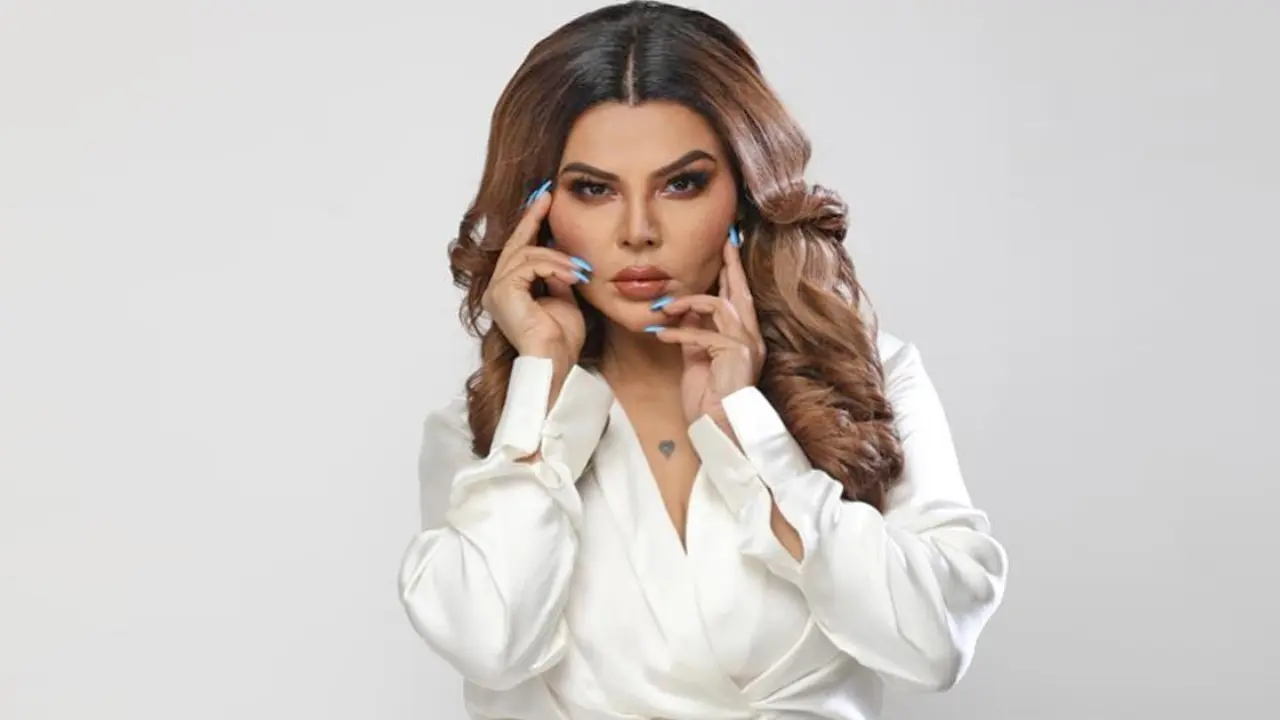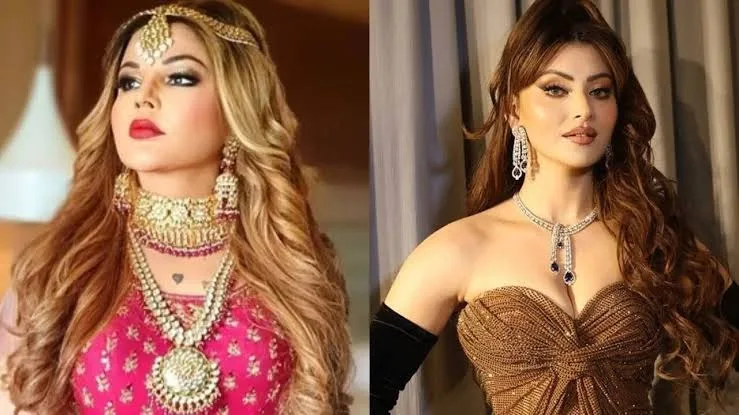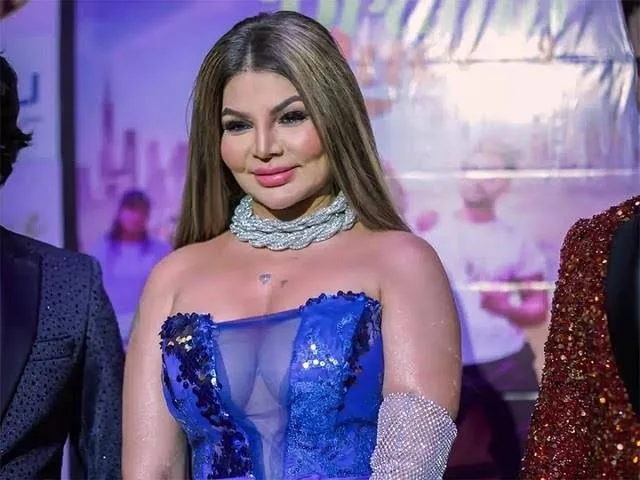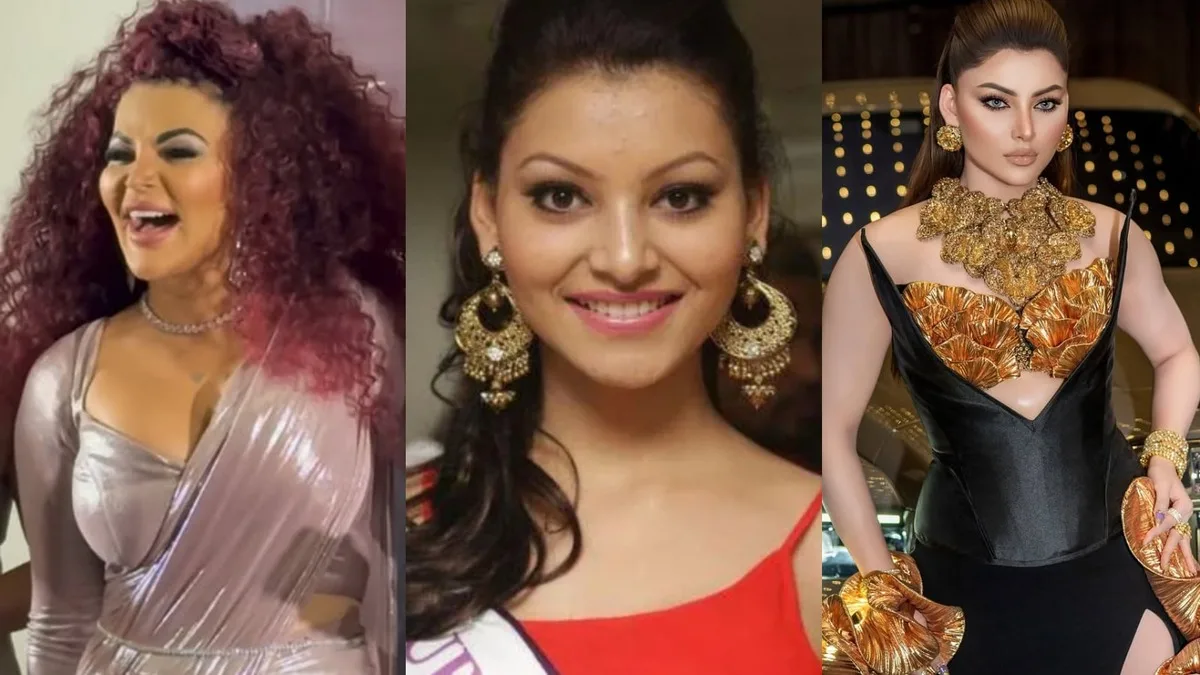In a fiery exchange that’s already making the rounds online, media personality Rakhi Sawant took a sharp public swipe at actress Urvashi Rautela’s claim of being “all-natural,” asserting that the pictures from the past tell a different story. The remark has reignited debates about cosmetic surgery, authenticity and the pressure of appearance in Bollywood.
Read more: Bigg Boss Makers And Salman Khan Faces Backlash Slamming Farhana Bhatt On Weekend Ka War By Her Fans
Rakhi Sawant, never one to mince words, targeted Urvashi during an interview when the latter had described herself as a “mountain girl” whose beauty came naturally and who had never undergone cosmetic procedures. “Humne tumhare purane photo dekhe hain, behen!” Rakhi declared. She added that modifying one’s body is perfectly acceptable—“surgery karo ya na karo, woh aapki marzi hai”—but stressed that claiming to be purely natural when there’s evidence to the contrary is disingenuous.

What Rakhi Sawant’s comment highlights
Her comments highlight two key tensions in Bollywood and wider popular culture: the equation of an actor’s value with their appearance, and the simultaneous denial or concealment of enhancements. Rakhi pointedly said, “Bahut saare logon ne apni hatheliyon ki haddiyan tudwa ke posterior waise karwa liye hain… aur phir bolte hain, ‘Main born aisi hoon!’” It was a blistering mix of humour and critique, aimed squarely at the unresolved contradiction.
Also Read: Shah Rukh Khan Shows Respectful Gesture Towards Woman Police Officer; Fans Can’t Stop Praising
Meanwhile, Urvashi, who often attributes her looks to her upbringing and fitness regime and denies any surgery, now finds herself under a glare of public scepticism. For Rakhi, who openly acknowledges her own cosmetic procedures, the issue isn’t surgery per se—it’s the lack of transparency. “Jo Khuda ne nahi diya, doctor ne de diya!” she quipped, capturing both blunt wit and sharp critique.

This incident is symptomatic of a much larger industry pattern: the conflation of appearance with credibility and success. In an ecosystem where “look” matters half as much as talent, the pressure on stars—especially women—to fit an idealised aesthetic remains intense. When an actor claims “natural beauty” while the public archive of images suggests alteration, the disconnect becomes fertile ground for criticism.
For years, Bollywood has upheld certain beauty standards—slim waists, sharp features, flawless complexion—that often compel public figures to invest in help from stylists, surgeons or photo-editing teams. But as Rakhi’s dig shows, the more fiercely one claims naturalness while their visual history tells another tale, the greater the risk of being called out.

Equally important is the message this sends to the audience. When public figures propagate the myth that success comes without interventions, what they’re really doing is reinforcing a standard of appearance as merit—while erasing the labour, craft and choice behind it. Rakhi’s stand invites us to look beyond the façade and question the narrative: Is “natural” really the root of success, or just its marketing tagline?
From a media-culture perspective, Rakhi’s role is interesting. She openly describes her enhancements; she treats surgery as a choice, not a confession. Meanwhile, the silence around procedures becomes a strategy. In targeting Urvashi’s claim of being untouched, Rakhi flips the script: she demands truth, at least. In doing so, she becomes a voice against artifice.
For Urvashi’s fans and detractors alike, the episode will loop into her public image. While she might continue to deny surgery, such a public call-out forces a conversation on authenticity—one that touches not just celebrity but viewer aspiration. When stars are held to high appearance standards, viewers internalise a binary: accept your body, or modify it—but silently. Rakhi’s agitation reveals that silence is no longer optional.
In the end, the exchange between the two stars isn’t just about two individuals—it’s a moment in an industry evolving under public gaze. The pressure to look perfect continues, but so too does the pressure to be perceived as naturally beautiful. And that performance is under scrutiny.


